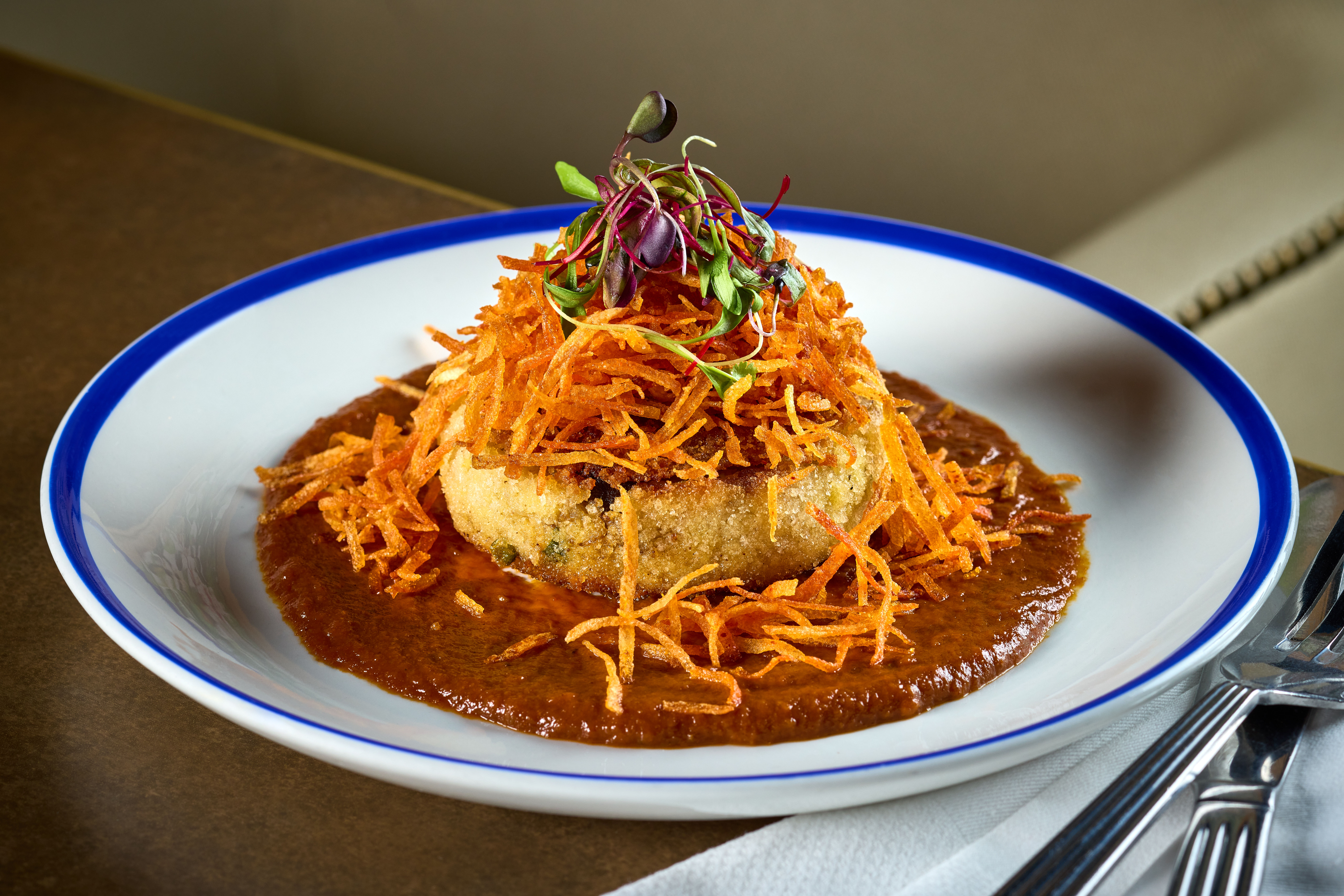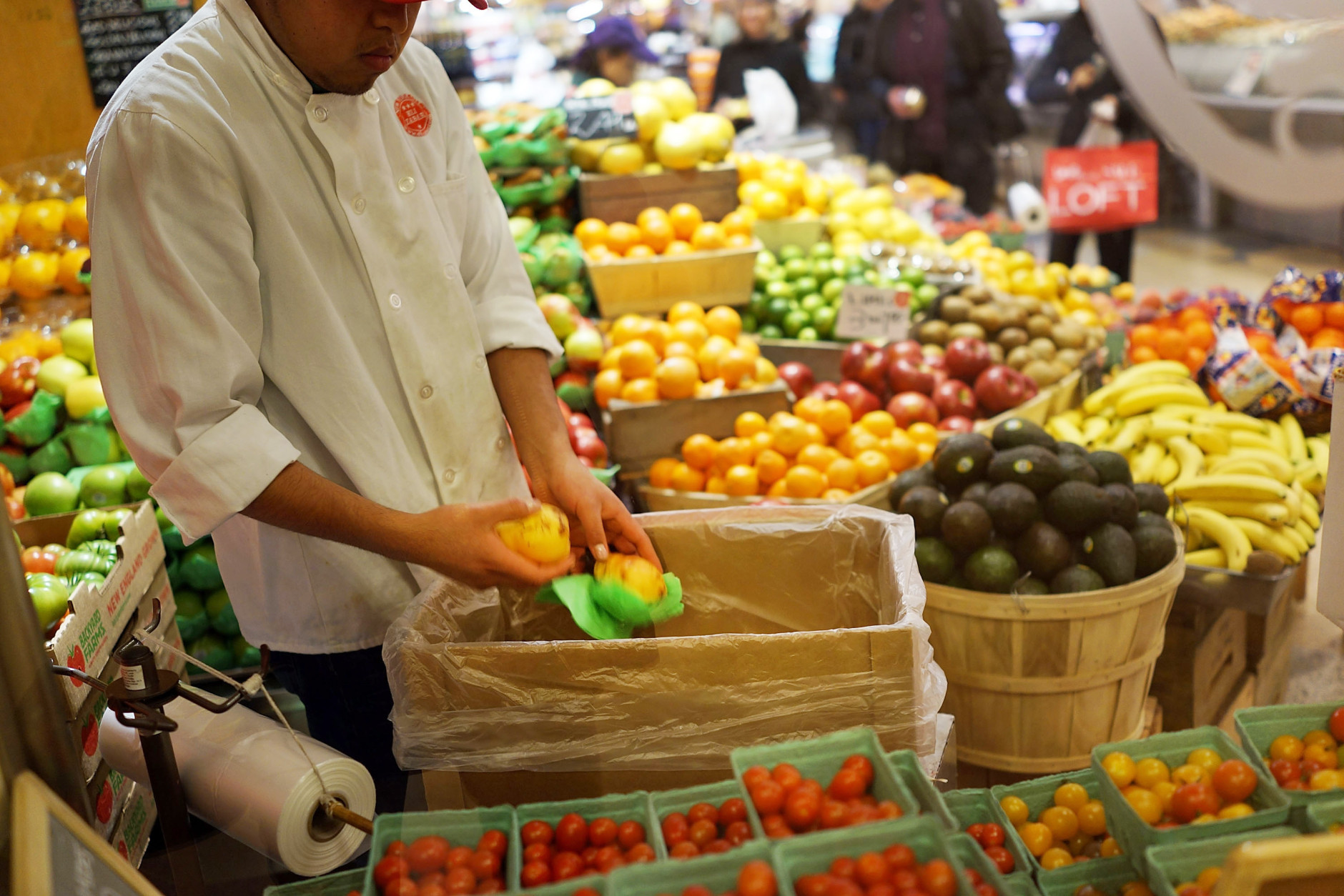
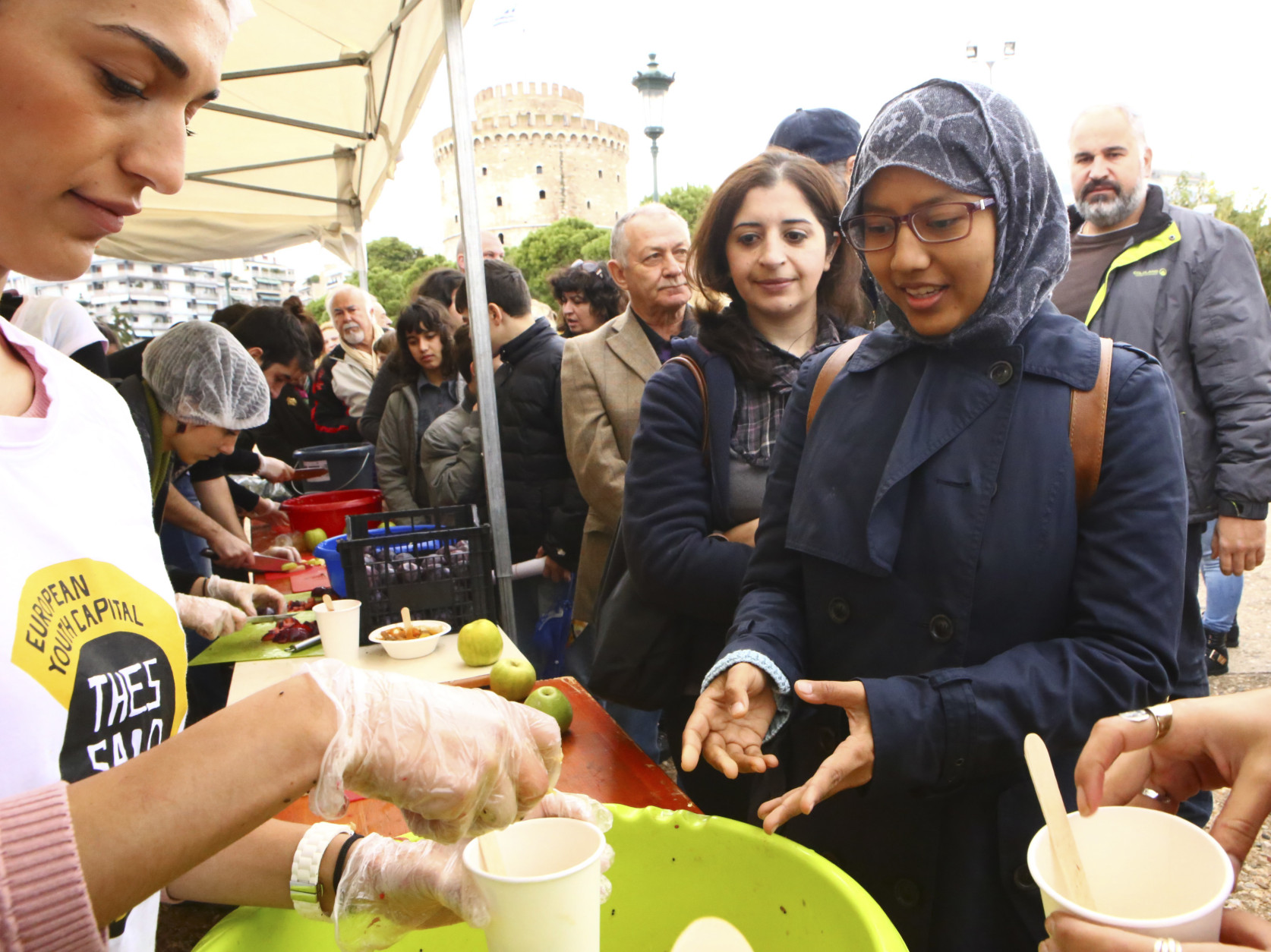
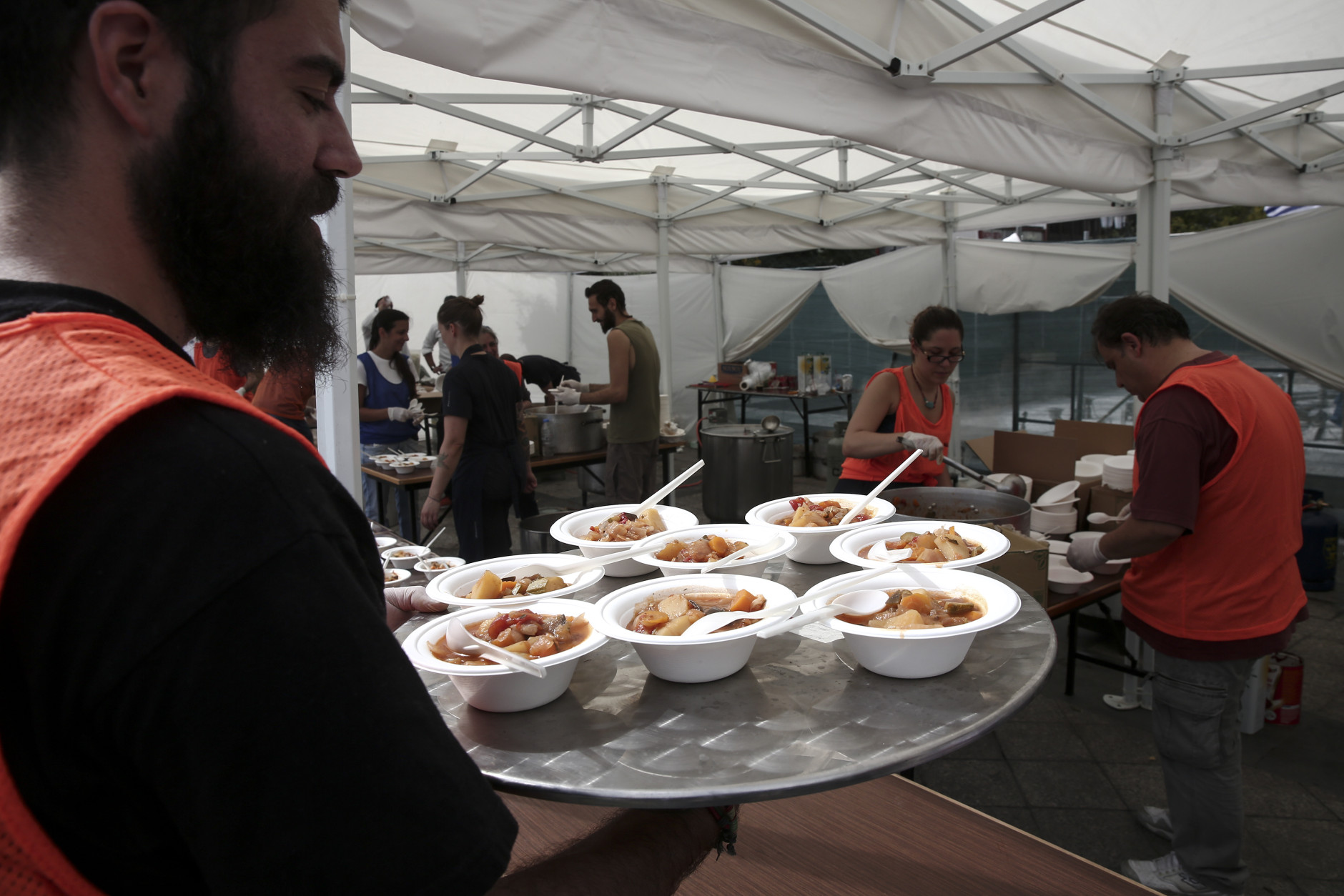
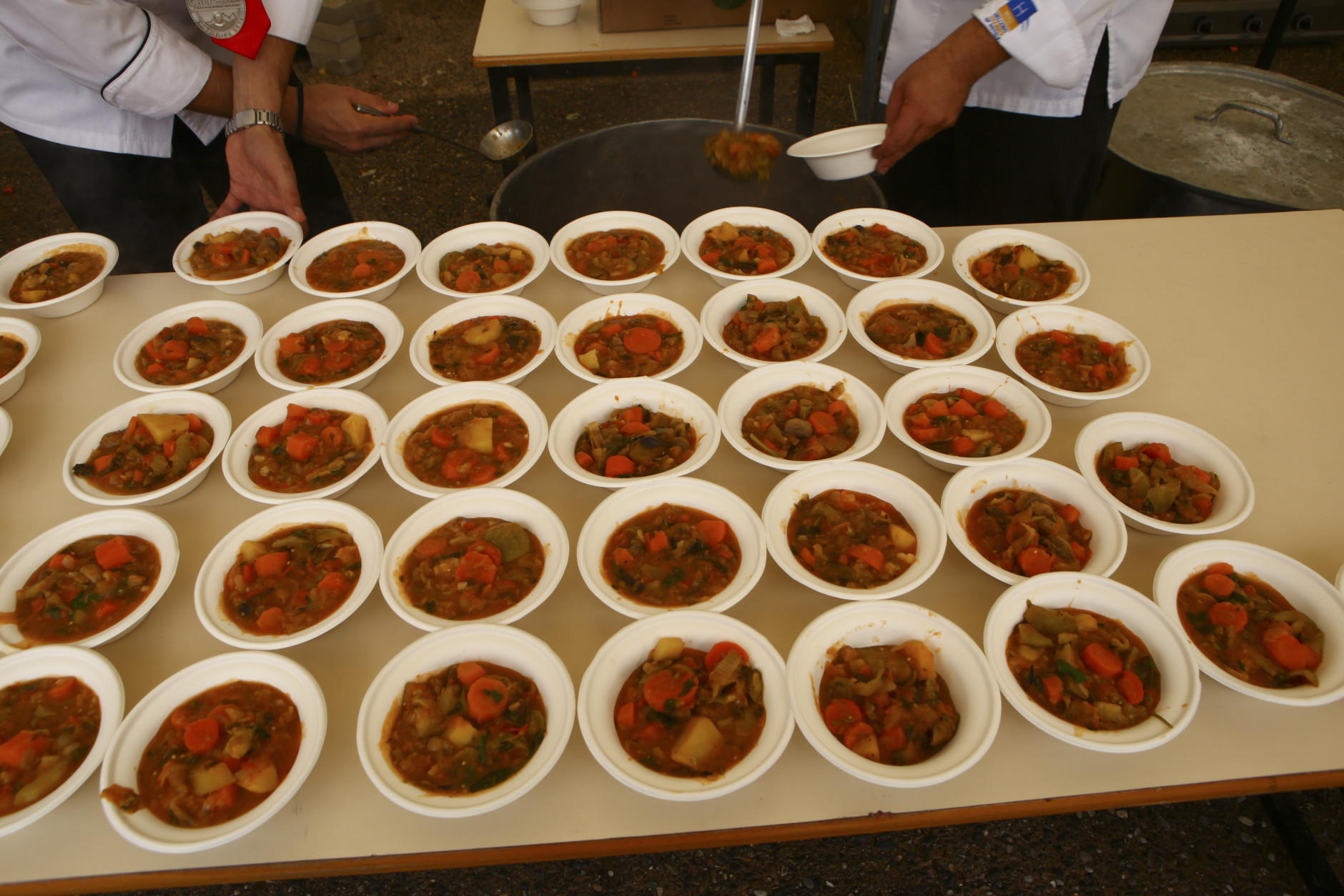
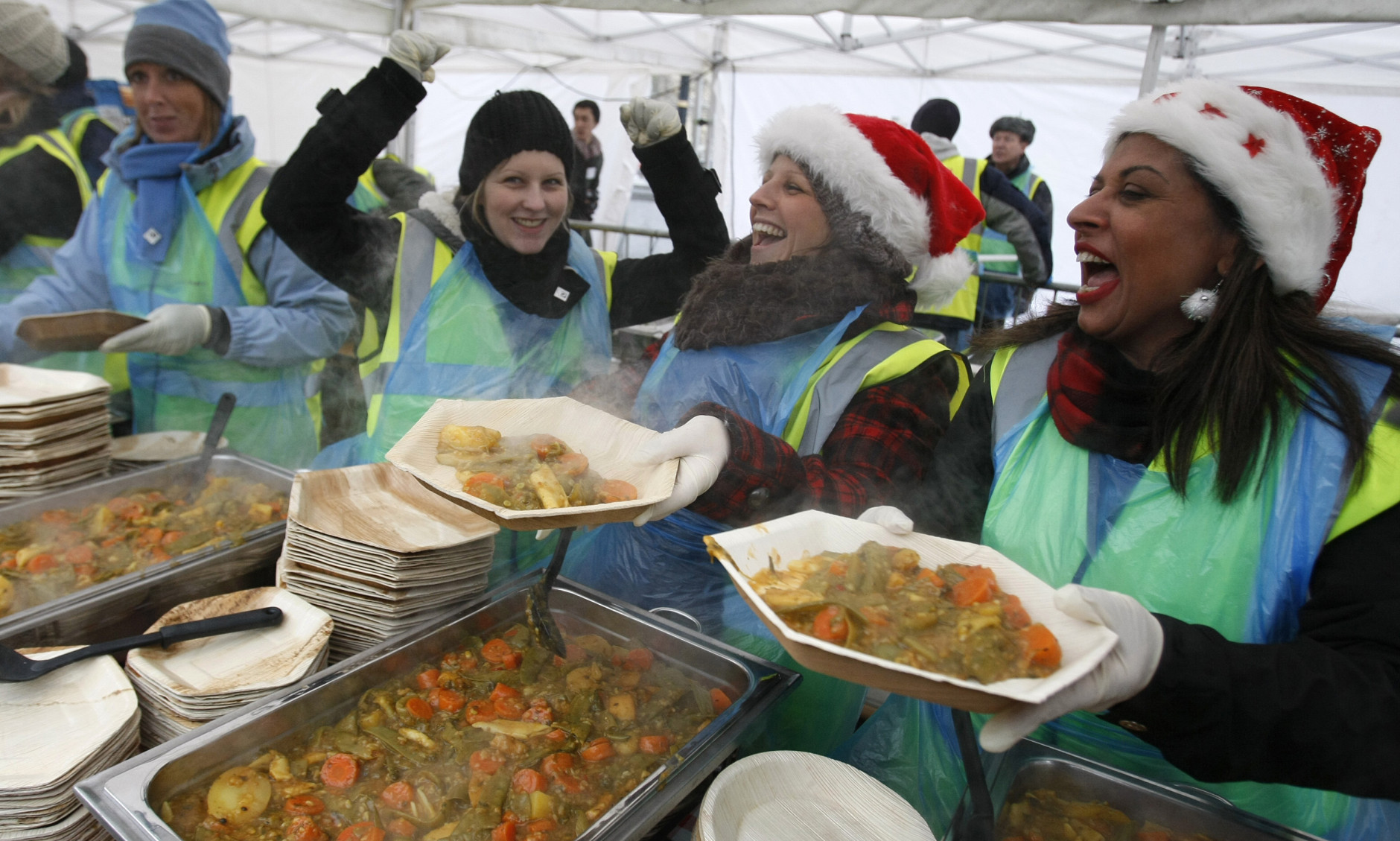
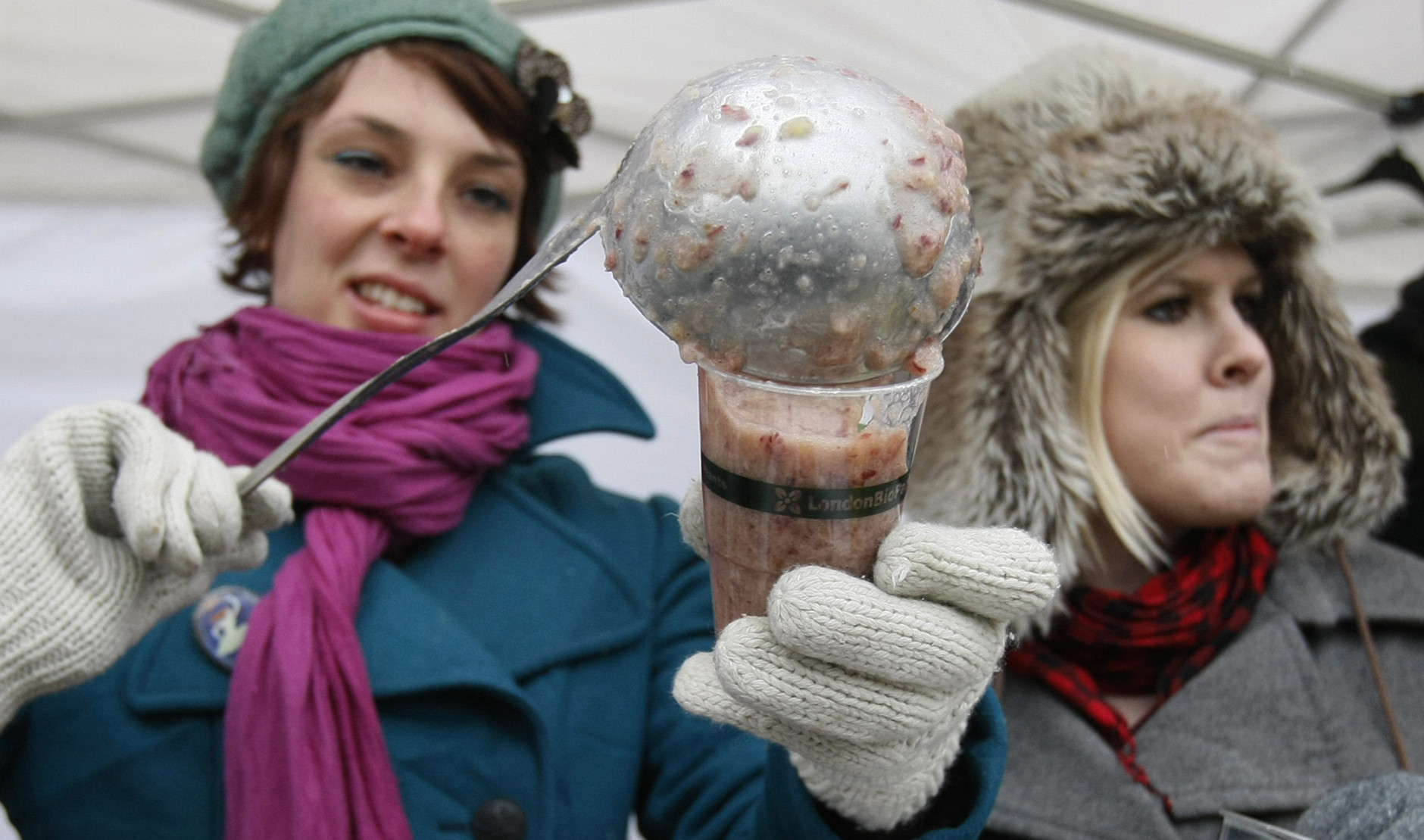
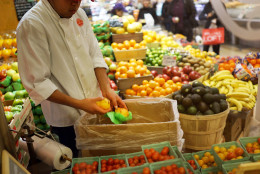
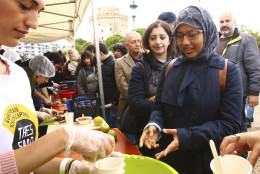
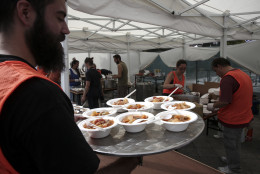
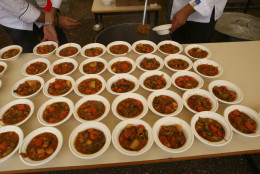
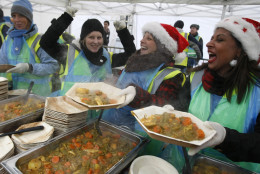
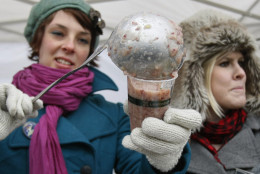
WASHINGTON — There’s no such thing as a free lunch — except for Wednesday.
From 11 a.m. to 4 p.m., volunteers and a cohort of nonprofits handed out free bowls of vegetable curry to 5,000 people on Woodrow Wilson Plaza in downtown D.C.
What was the catch? There wasn’t one — just a reality to digest, since the feast was made entirely from food that otherwise would have been thrown away.
Tristram Stuart, founder of the U.K.-based nonprofit Feedback, is the architect of the event. His interest in food waste can be traced back to his teenage years when he would feed his pigs with leftovers from his school cafeteria and the local baker.
“I realized that most of this food was perfectly good for human consumption, and as an environmentalist, I knew we were using huge amounts of land and resources to grow all of this food and then seeing so much of it go to waste in supermarkets and shops and on farms,” Stuart said.
He spent his professional years studying the issue and writing about it, but decided the only way to really inspire people to take responsibility for solving the global problem was to bring it to life.
“I thought there’s no better way of doing that than feeding a lot of people with perfectly good food and letting them know that actually, if it weren’t for this feast, all of this would have been wasted.”
Stuart organized the first Feeding 5000 festival in London in 2009, and has since hosted more than 34 free lunches around the globe to raise awareness for food waste. So far, it’s worked.
The U.K. has implemented supermarket and government policies to curb waste, and Stuart says he’s seen “real drastic change across the industry.”
“And sure enough, we had organizations from around the world who wanted to use that format as a way of launching national campaigns on food waste.”
The reaction from the free-lunch attendees is twofold, Stuart says. There’s an element of surprise that a delicious meal would be thrown out, and then shock over the extent of the problem.
According to the UN Food and Agriculture Organization, roughly one-third of food produced for human consumption (about 1.3 billion tons) gets wasted each year. This staggering statistic comes with heavy economic and environmental burdens.
Each year, the U.S. spends $218 billion growing, processing and transporting food that is never eaten, while 49 million Americans live in food insecure households. Globally, wasted food generates 3.3 billion tons of greenhouse gases.
“It’s also understanding the sheer scale of the food waste scandal, and that we’re not talking about just wasting the odd piece of moldy bread. It’s systemic,” said Stuart, who explains that waste starts on farms where entire harvests are sometimes jettisoned because they don’t meet the cosmetic standards of retailers.
Overproduction and overloading buffets and supermarket produce stands also contributes to the problem.
However, things are looking up for all the twisted carrots and beat-up beets in the world. In the past few years, food waste has become a popular topic in mainstream media. Renowned chef Dan Barber turned trash into tasty treasures at his dining pop up Wasted; even the Food Network tackled the topic in its series “The Big Waste.”
Stuart says the acceleration of interest he’s seen in the last 18 months to two years in the U.S. is encouraging.
Spike Mendelsohn, a former “Top Chef” contestant and chef and owner of Good Stuff Eatery, We The Pizza and Bernaise, wants Washingtonians to become active in the fight to curb food waste — starting in their own kitchens.
At the Feeding 5000 event, Mendelsohn, who was appointed chairman of D.C.’s Food Policy Council in 2015, demonstrated how to make a “kitchen sink” chili. He says the dish is perfect for using up what you already have. The ingredients don’t have to be exact and the produce can be a little past-ripe.
“The cooking technique lends well to items that are maybe a little older or they look a little bruised up because it’s a long cooking period and it cooks down,” he said.
Working in the restaurant industry, food waste is constantly on Mendelsohn’s mind. To cut down on what gets thrown out in the kitchen, he looks for ways to use up every part of an ingredient. Often, that will result in stretching a piece of produce across multiple dishes and throwing scraps into stock. He also scales back portion sizes to plates “that make a little more sense,” and encourages diners to take home leftovers.
“I feel like chefs have a duty to make people more aware of this problem, but then also practice it in their own restaurants,” Mendelsohn said. “To me, it’s always been sad, the thought that we could throw perfectly good, edible, nutritious food away when there are people starving.”
Stuart says since the inaugural Feeding 5000, there’s been a 21 percent reduction in household food waste. However, there is still room for improvement. At home, his advice is simple: Buy only what you need and eat what you buy.
He also encourages consumers to demand policy changes in the food industry. His issue du jour? Expiration dates.
“I have to say, in all of my years of campaigning on this, the expiration date system in this country is probably the most ridiculous thing I have ever come across,” Stuart said.
Phrases such as “best by,” “best if used by” and “expires on” cause confusion among consumers, and as a result, perfectly good food gets chucked too early.
“Most of those dates actually have nothing to do with food safety, whatsoever, and yet there is no standardized system where even an expert can understand what any individual date means,” he said.
Stuart wants retailers and manufacturers to agree on the same labeling language for foods so that consumers know when a particular food might become an issue of safety, and when a product is just in peak condition.
“We save money, save environmental impact, help to feed hungry people simply by ensuring that all of the food that we have at our disposal gets eaten, rather than actually disposed of,” Stuart said.

